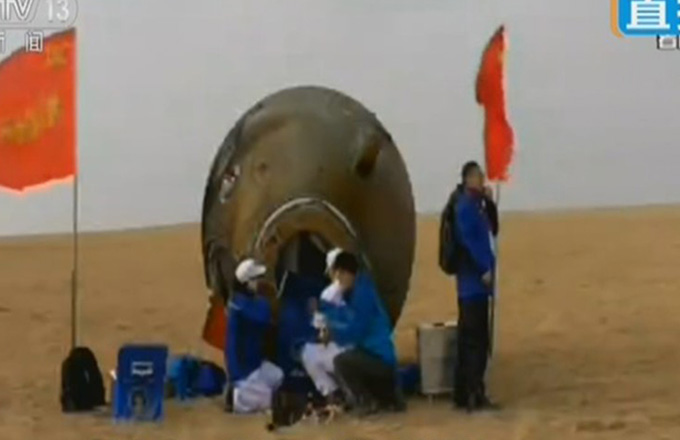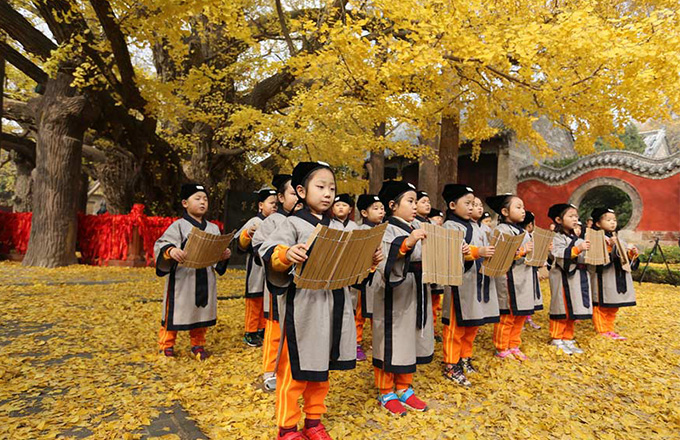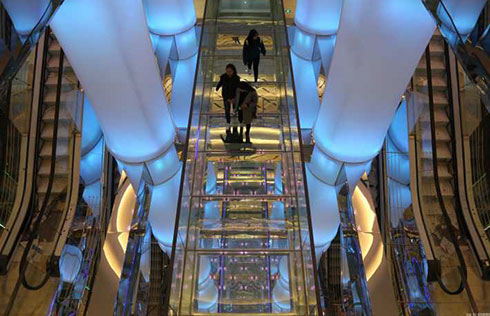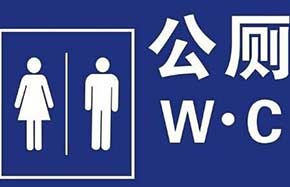China faces tough battle against smog: official
BEIJING - ?China still faces an urgent and formidable task in combating air pollution, which is a persistent "affliction to people's hearts and lungs," an official said Friday.
Recent bouts of severe air pollution in Beijing are reminders of the grim situation for environmental protection, Zhao Yingmin, vice minister of environmental protection, said at a press conference.
On Friday, the national observatory continued to issue warnings for moderate to heavy smog in northern and central China, with some areas in Beijing, Hebei, Henan and Shaanxi issuing orange alerts, the second-highest in a four-tier warning system.
The top priority of air pollution control should be addressing severe air pollution, especially pollution in north China this winter, Zhao said.
"China should strive to resolve the affliction to people's hearts and lungs in the shortest time possible," Zhao said.
The fundamental reason for frequent heavy smog is excessive pollutant emissions, although smog-trapping weather conditions also play a part, Zhao said.
"Without help from nature, people should make more efforts to fight pollution," he said.
The country will push to revamp industrial and energy structures in the Beijing-Tianjin-Hebei region and surrounding areas, home to some 50 percent of China's coal consumption and steel production capacity, Zhao said.
China will also reduce pollutant emissions by acting on highly-polluting companies, promoting clean use of coal and eliminating vehicles with excessive emissions.
Zhao added that China will also improve the accuracy of air quality forecasts, reinforce government supervision and enhance regional coordination in extreme weather conditions.
Encouraging figures have been released by the ministry. In 338 large Chinese cities, 81.4 percent of days in the first 10 months had good air quality, slightly higher than last year.
A national guideline on environmental improvements for 2016-2020 was approved at a State Council executive meeting presided over by Premier Li Keqiang on Tuesday, specifying targets for reducing air, water and land pollution.
It sets the goals for a more environmentally friendly way of living, considerable reduction of major pollutants, and a sounder ecological system by 2020.
Recent bouts of severe air pollution in Beijing are reminders of the grim situation for environmental protection, Zhao Yingmin, vice minister of environmental protection, said at a press conference.
On Friday, the national observatory continued to issue warnings for moderate to heavy smog in northern and central China, with some areas in Beijing, Hebei, Henan and Shaanxi issuing orange alerts, the second-highest in a four-tier warning system.
The top priority of air pollution control should be addressing severe air pollution, especially pollution in north China this winter, Zhao said.
"China should strive to resolve the affliction to people's hearts and lungs in the shortest time possible," Zhao said.
The fundamental reason for frequent heavy smog is excessive pollutant emissions, although smog-trapping weather conditions also play a part, Zhao said.
"Without help from nature, people should make more efforts to fight pollution," he said.
The country will push to revamp industrial and energy structures in the Beijing-Tianjin-Hebei region and surrounding areas, home to some 50 percent of China's coal consumption and steel production capacity, Zhao said.
China will also reduce pollutant emissions by acting on highly-polluting companies, promoting clean use of coal and eliminating vehicles with excessive emissions.
Zhao added that China will also improve the accuracy of air quality forecasts, reinforce government supervision and enhance regional coordination in extreme weather conditions.
Encouraging figures have been released by the ministry. In 338 large Chinese cities, 81.4 percent of days in the first 10 months had good air quality, slightly higher than last year.
A national guideline on environmental improvements for 2016-2020 was approved at a State Council executive meeting presided over by Premier Li Keqiang on Tuesday, specifying targets for reducing air, water and land pollution.
It sets the goals for a more environmentally friendly way of living, considerable reduction of major pollutants, and a sounder ecological system by 2020.























